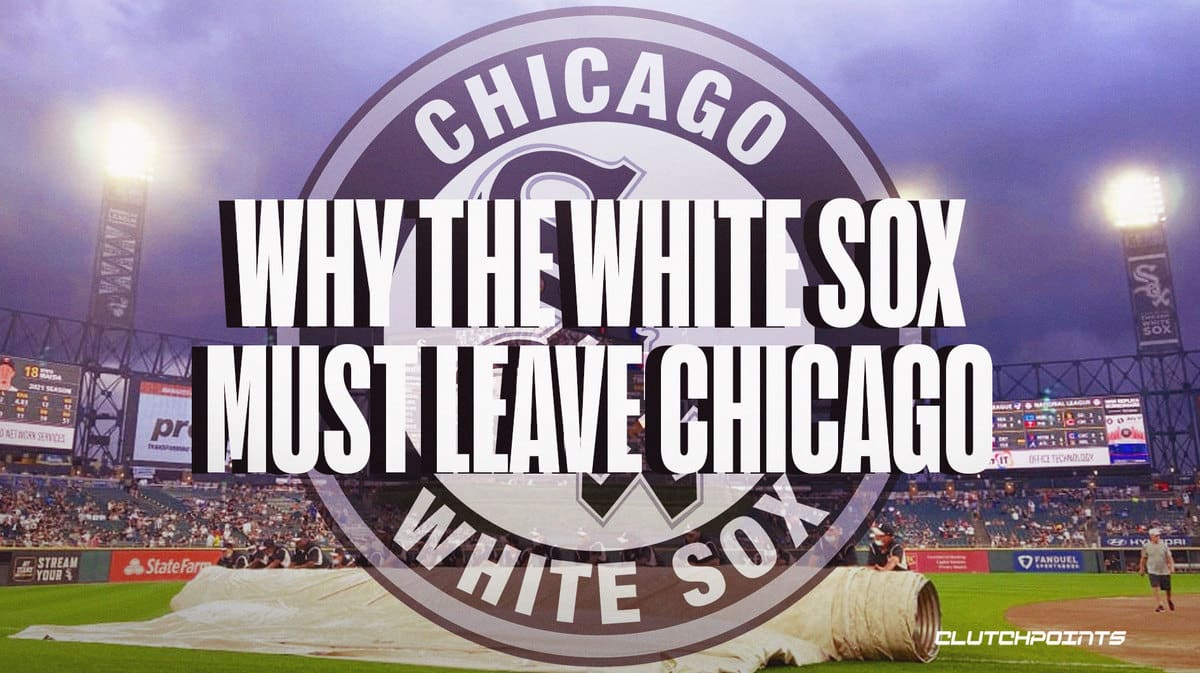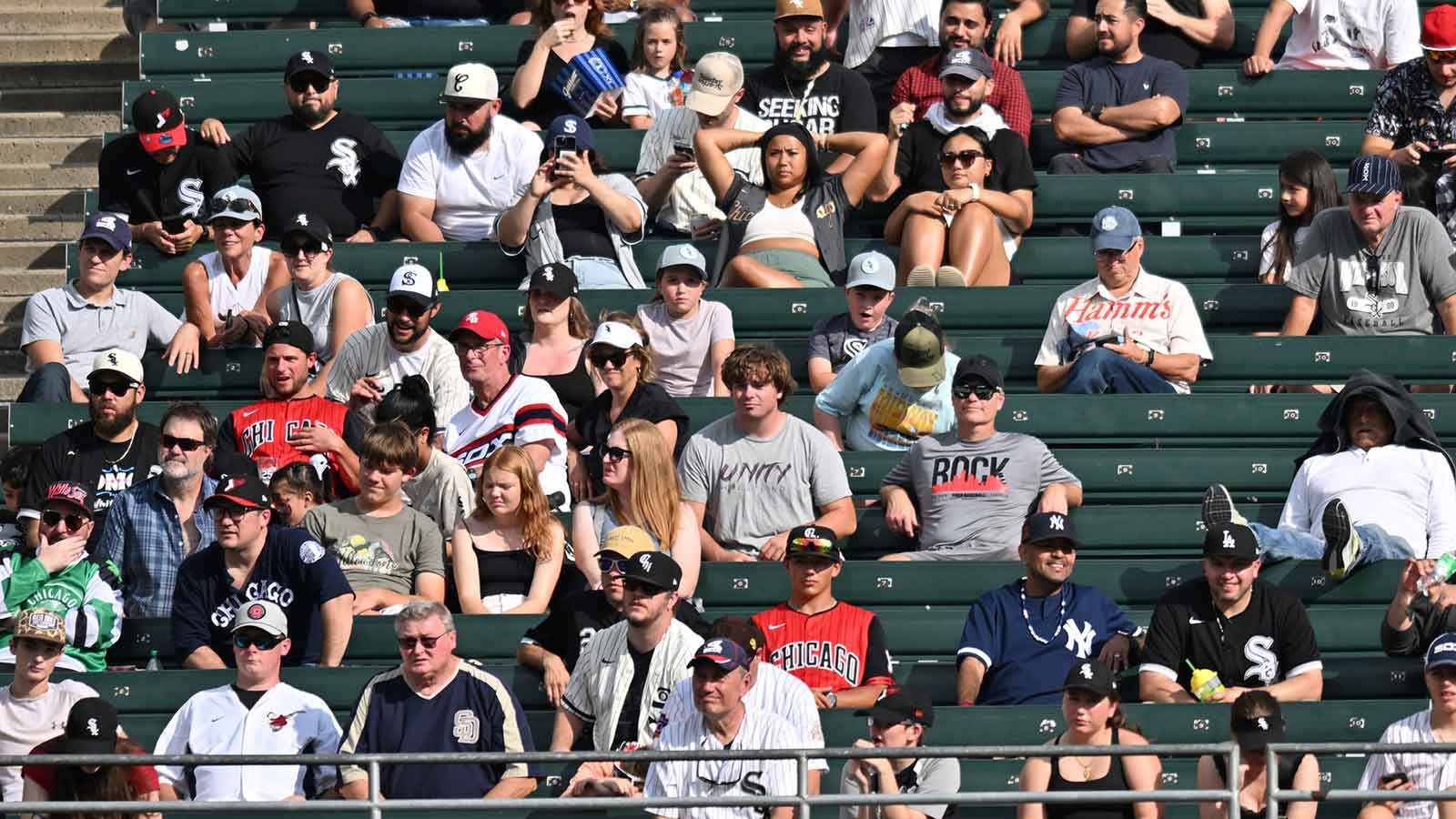Six years from now, the South Side of Chicago could appear somewhat bare without its cherished team calling it home any longer. This week, the announcement surfaced that Chicago White Sox owner Jerry Reinsdorf, 87, might explore relocating the team as its lease expires in 2029, or potentially selling the entire franchise. In either scenario, it's a decision that the White Sox should contemplate, given that a move from Chicago could likely prove advantageous at this juncture.
The White Sox join a list of teams considering relocation
Evidently, there's no absolute guarantee that the White Sox would definitively depart from Chicago, a source told Crain's Chicago Business, per the Daily Herald. “This is the time to evaluate other options in and around Chicago.”
Presently, the White Sox are becoming part of a growing trend among MLB teams contemplating future relocations. Everyone is well aware of the persistent search by the Oakland Athletics for a new home, with Las Vegas appearing to be their prospective destination in the future (perhaps). Additionally, there's the Tampa Bay Rays, whose owner, Stu Sternberg, has engaged in ongoing battles with the city of Tampa over securing a new stadium or relocating elsewhere. Moreover, a recent rumor suggests that the Milwaukee Brewers could relocate if they fail to secure funding from Wisconsin taxpayers for their stadium upgrades.
The White Sox have been a fixture on the South Side of Chicago for more than a century, dating back to 1901, when they were among the original eight charter members of the American League. The White Sox have a rich history in Chi-Town, filled with numerous memories—both positive and negative. Notable successes include six American League pennants and three World Series titles. However, they also carry the shadow of the infamous Black Sox scandal, which led to the suspension of eight White Sox players, including “Shoeless” Joe Jackson, for their involvement in a bribery scheme to manipulate the 1919 World Series against the Cincinnati Reds.
While the White Sox could undoubtedly create more memories in the Chicago area, these could potentially fade into obscurity like others before them. This is because, when discussing Chicago baseball, it's hard not to automatically think of the Chicago Cubs.
Chicago is a Cubs stronghold, not a White Sox haven
The Cubs embody the enduring remnants of what defines great baseball, with Wrigley Field playing a significant role in this legacy. The 109-year-old stadium, erected in 1914, stands as one of the last iconic pieces of America's Greatest Pastime—this remains true even after the renovations. Chicago itself is an old town, a city that proudly wears its history on its sleeves, regardless of its nature. The Cubs have effectively embraced this concept.
Even during the Cubs' century-long struggles, their fans were there, chanting “Go Cubs Go” or tossing back home run balls hit by opposing teams over the ivy-clad walls and into the stands. In Chicago, it's synonymous with raising the W flag after each victory, the resonating voice of Harry Caray during “Take Me Out to the Ballgame,” and now, even beer snakes.
The White Sox boast their own traditions. For instance, they gather at the plate, a symbolic gesture where fans pose at the former location of home plate at the old Comiskey Park across from 35th street. Another tradition involves meeting by a towering cottonwood tree on 35th street that once grew outside the old park.
Let's be honest: these traditions aren't remotely comparable. You can glean that simply from reading about them. The Cubs and their fans have found a way to epitomize Chicago sports pride—this remained true even during periods of non-victory. Recall when the White Sox clinched their most recent World Series title in 2005; for many beyond the South Side of Chicago, that accomplishment might have faded from memory. Conversely, regardless of whether one is a Cubs fan, most baseball enthusiasts can pinpoint when the Cubs secured their World Series victory in 2016.
The White Sox must seek a new home beyond Chicago
Should the move transpire as the White Sox's lease ends in 2029, it's unlikely to garner widespread support. Such a decision would undoubtedly draw criticism from fans, media members in the South Side Chicago area, and beyond. Yet, the reality is that having two baseball teams in Chicago may no longer be necessary, particularly when various parts of the country are craving a professional baseball presence. The need for two teams in a single city, or in close proximity, is limited outside of locations like New York. (Yes, Los Angeles Angels, this includes you.)
Considering the current landscape and even the possibilities beyond, such as Montreal, Canada, relocating and rebranding could represent a promising step for the White Sox. Rather than an endeavor fraught with uncertainty and doubt, embracing new horizons and unexplored markets could serve as a catalyst for rejuvenating the White Sox franchise. This strategic move could also aid Major League Baseball in tapping into untapped markets, subsequently elevating the sport's visibility.




















